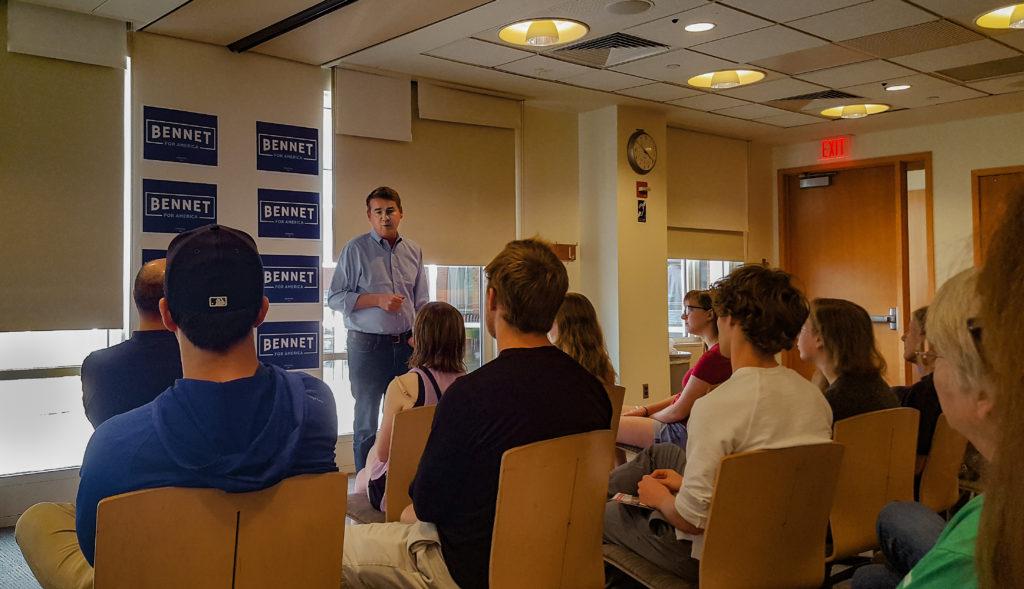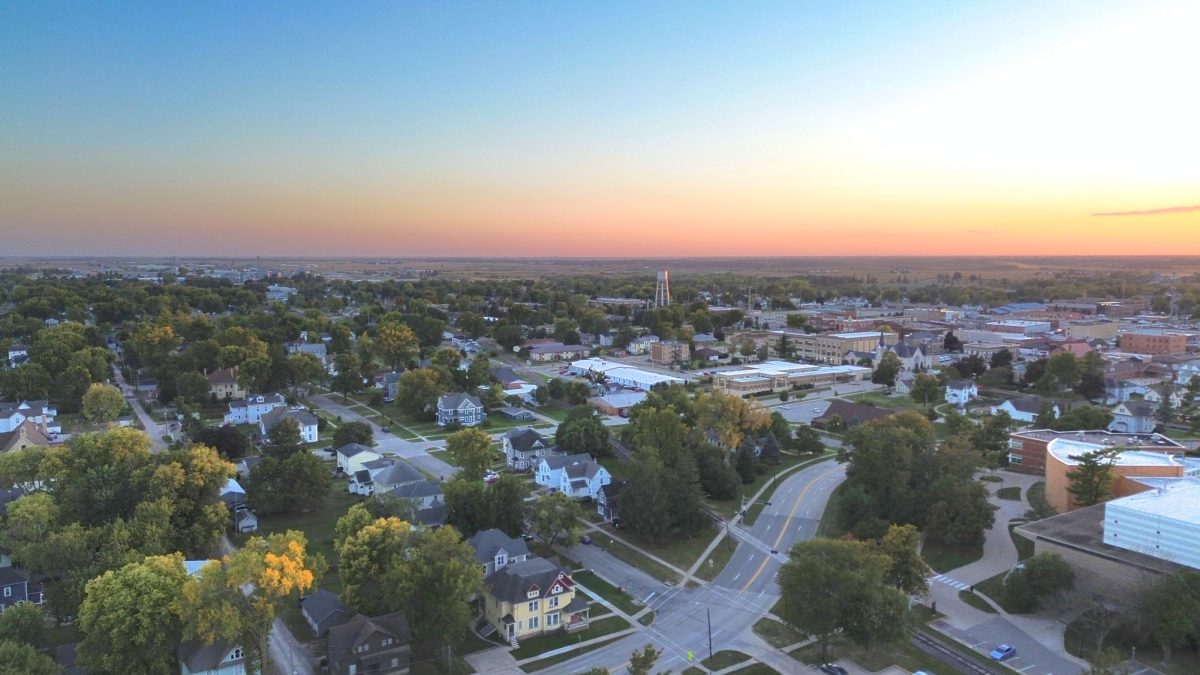By Seth Taylor
taylorse@grinnell.com
Democratic Presidential Candidate Michael Bennet pitched himself as a pragmatic, principled candidate who can win over conservative and independent voters in the general election on Saturday.
A senator from Colorado, Bennet spoke for an hour, answering questions on gun control, climate change, reparations, the trade war and more from a group of 25 students and community members in JRC 209.
Bennet is one of many candidates who have struggled to gain traction in the race for president. An August poll of Iowa voters from Monmouth University had Bennet at 0%. Nationally, an ABC News/Washington Post poll released in early September also had him at 0%. While Bennet did participate in the first two Democratic debates, he failed to qualify for the third (he has since heavily criticized the Democratic National Committee’s “arbitrary” debate requirements).
Still, he hasn’t given up. “I wouldn’t have run if I didn’t think that I could win,” Bennet said in an interview with The S&B after the event. “There’s going to be a lot of change in this field between now and when the caucuses are meeting and that’s almost always been true.”
Bennet comes off as an affable, mild-mannered politician, but throughout his stump speech he exhibited bursts of spontaneous animation. When an audience member told him she was an American civics teacher, he threw his hands above his head and leapt a foot into the air before sidling over to an aide to get her a copy of his book, “The Land of Flickering Lights.”
“Well, I wrote this book—it doesn’t have my picture on the front of it,” he quipped with a copy in hand.
Bennet began his introduction with an appeal for bipartisanship, a theme that was present throughout his answers. “I don’t believe that people in my state or in your state are remotely as divided as the politics in Washington suggest that we are,” he said.
But he also offered a strong rebuke of the politics of the Freedom Caucus, a far-right faction of Congressional members, and of the Senate Majority Leader Mitch McConnell. He described the Freedom Caucus as obstructionist “tyrants” and Mitch McConnell as “cynical and malevolent.” Bennet argued that Democrats must defeat these factions to have any hope of enacting their agenda if they win back the White House.
“We have to do the work between now and [the general election] to ensure that [Donald Trump] is a one term president, and I strongly believe … that we need to nominate somebody who’s got an agenda that is going to unite the American people against a broken Washington and that can carry Senate seats in places like Colorado and Iowa … so that we don’t just win the presidency, but we win a majority of the Senate as well and put the sorry chapter of the Freedom Caucus and Mitch McConnell behind us.”
In the debates, Bennet warned against liberal policies he deems politically impossible, and on Saturday he wasn’t shy about criticizing other candidates, in particular Bernie Sanders. Bennet bemoaned the amount of time in the Democratic Primary that has been “consumed” by policies like Medicare for All “that will never pass and [will] never become law.”
“I appreciate [Bernie Sanders’] ideological commitment to Medicare for All, but I just think he’s flat wrong about it. I think it’s a poor policy choice and politically it’s impossible,” he said. Bennet supports adding a public option to the Affordable Care Act and has authored an alternative to Medicare for All, called “Medicare X,” in Congress.
Despite his indictment of Sanders, Bennet shies away from the characterization of his proposals as moderate. “I think it would be wrong to imagine that what I’m offering is less courageous. I don’t think it’s courageous to offer talking points about something that mobilizes people on Twitter but can never get done,” he told The S&B.
Bennet repeatedly spoke directly to students in the audience, criticizing older generations for what he described as an abdication of responsibility on important issues—such as student debt and climate change—that will ultimately hurt younger generations the most.
When asked why he believes he understands young voters’ concerns better than other politicians, he cited his tenure as Superintendent of the Denver Public Schools and argued that his policies, from top to bottom, put the younger generation in mind.
“I would say that my proposals, from healthcare to the child tax credit that I mentioned earlier to climate all express a profound interest in what the next generation is looking for. I guess it’s not a surprise, because I’m the father of three daughters who are insisting that I do my job,” he said.
John Stookey ’20 was one of the students in attendance. Originally a supporter of Jay Inslee before Inslee dropped out of the race, Stookey said that Bernie Sanders and Elizabeth Warren are now his top candidates. Climate Change is his number one issue. It is unlikely, he said, that he will support Bennet, but he appreciates his contribution to the campaign.
“Part of being in an early caucus state is that you need to give each candidate the attention they deserve,” Stookey said.






























































